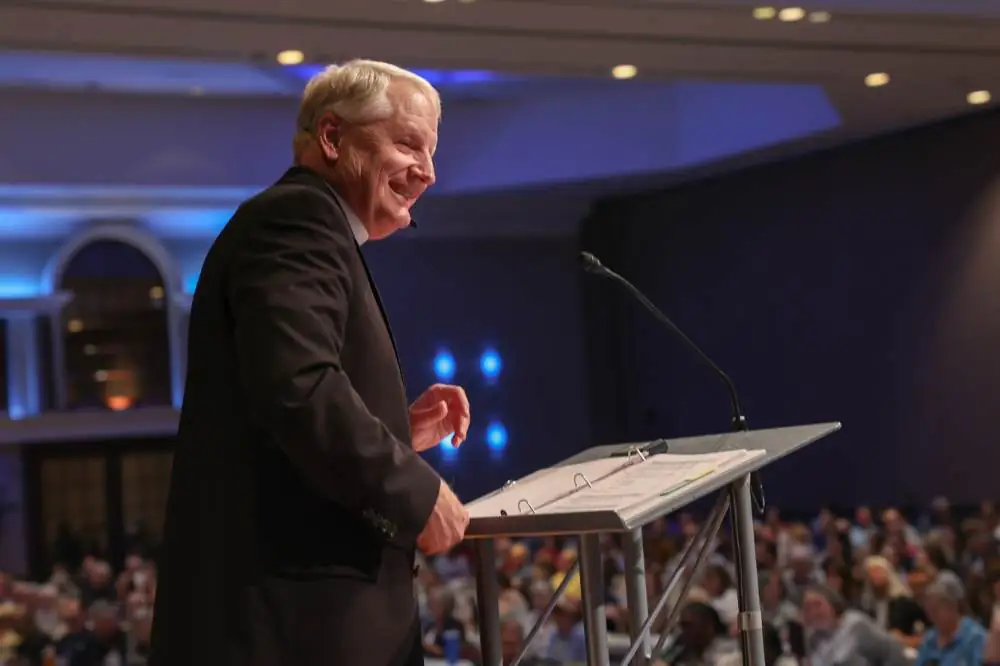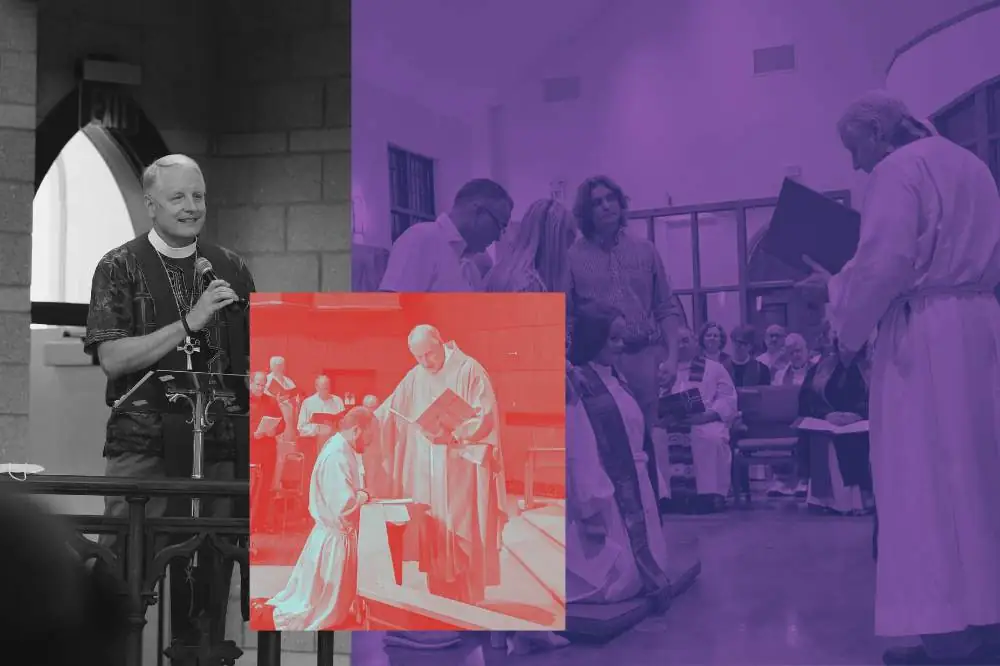“Would you rather be right, or happy?” This was the last, almost seemingly afterthought question after we had already prayed and stood to go our separate ways during my first conversation with the call committee at Grace in Boone in 1993. I jokingly replied, “Well, usually I’m happy when I AM right!” But after the initial chuckles, the young man persisted. “But seriously. If you had to choose, which would it be? I think it could matter a lot to this congregation to know.” “Well,” I began, off the cuff, “I’m married. Seems to me that if both people in a marriage, or maybe even if either person in a marriage, has to be right in order to be together, then that marriage is on shaky ground. So if by ‘happy’ you mean together, staying in relationship, and since relationship is, at the end of the day, the most important thing, I’d have to choose happy. Together. Us over my strong opinions.”
The more I experience, the more I grow to appreciate that question as critical on so many levels. How can families, friends, communities, nations—humanity—survive if what we value most is being right all the time at the expense of us? We fall into the old fundamentalism that centers self that you’ve heard me say many times. In order for me to be right, you must be wrong. For me to win, you must lose. For me to have value, you must be de-valued. For me to be saved you must be condemned. Finally, for me to live, you must die. Us and them. Cain and Abel. Hatfields and McCoys. 16th-century Anabaptists and Lutherans and Catholics. Palestinians and Israelis. Christian Nationalism or White Supremacy vs. anyone else who is not our definition of our nation or racially-assigned value. “Justice warriors” who insist on valuing and including everyone except the ones they deem exclusive. Liberals and conservatives. ELCA and LCMC and LCMS and NALC. Us and them. Only winners who are right(eous) walk away happy. Or do they? Do we?
Unity is such a fragile thing, yet it is what Jesus prayed for his followers in Chapter 17, the conclusion of the farewell discourse in the Gospel of John. He knew our proclivity to blame, demonize, de-value, divide, destroy. Jesus, the Christ, IS the unity of the church. As our sinful default mode tempts us Lutherans to see our-selves as the right(eous) ones, our calling in Christ is always conciliatory. How can we lift up and value the larger us in a diverse world?
A Bridge Story: A more in-depth article will be coming soon as one of our ministry stories we lift up to highlight good things that happen when people work together. For now, allow me simply to summarize. The bridge to a neighborhood in Lincoln Country washed out in the recent past, cutting the community off from everything. They pooled resources and came up with the resources to rebuild the bridge, but it soon washed away again! With Mennonite (yep, the dreaded 16th-century Anabaptists) expertise and labor, along with substantial grants from Lutheran Disaster Response, Samaritan’s Purse (about whom I’ve been known to rant from my years in Boone), and others, a sturdy steel bridge went up and was dedicated the end of last month. The grateful homeowners were able to return to their homes on Amity Lane in Lincoln County. Thanks be to God!
As with all our ecumenical pursuits, we are called to find and focus on our common ground—the us—more than our differences. For me during this time of deep polarization, this bridge story shares a message with the world that people from different faith and political perspectives can and should (and do!) come together to accomplish a great good rather than focusing on our differences. The world sorely needs a little more pulling together and a little less highlighting who’s right and who’s wrong. And, honestly, wouldn’t we all be a lot happier if we could just focus more on what holds us together instead of what drives us apart? It seems pretty clear to me that Jesus thought so.
Walking with you,





